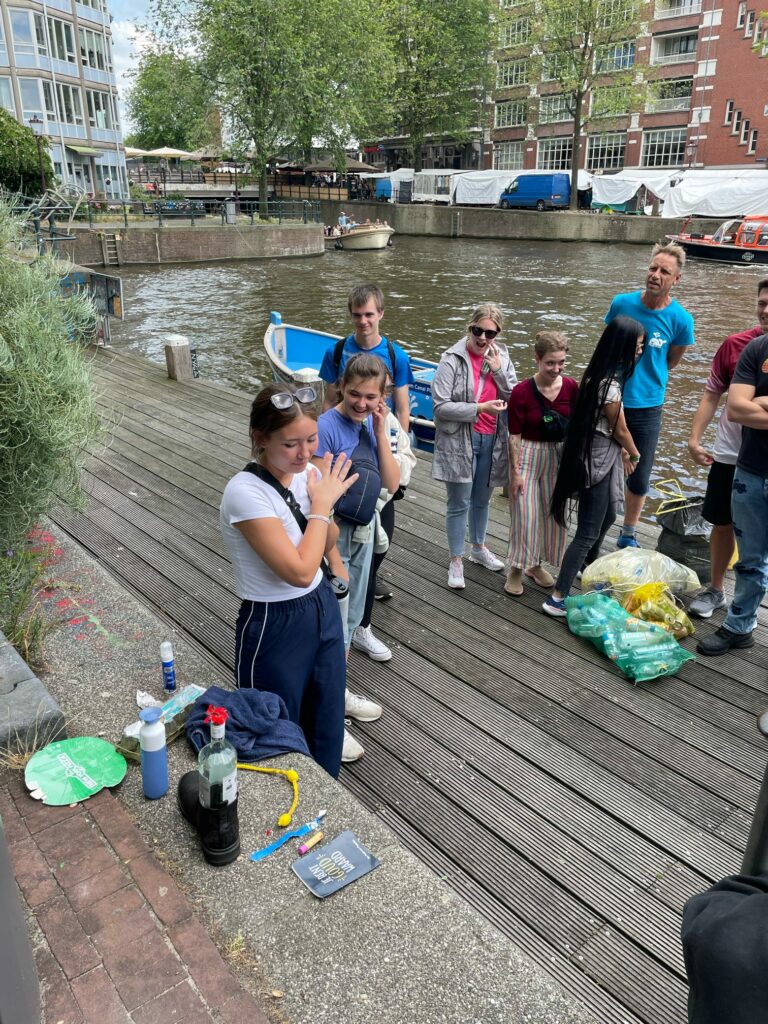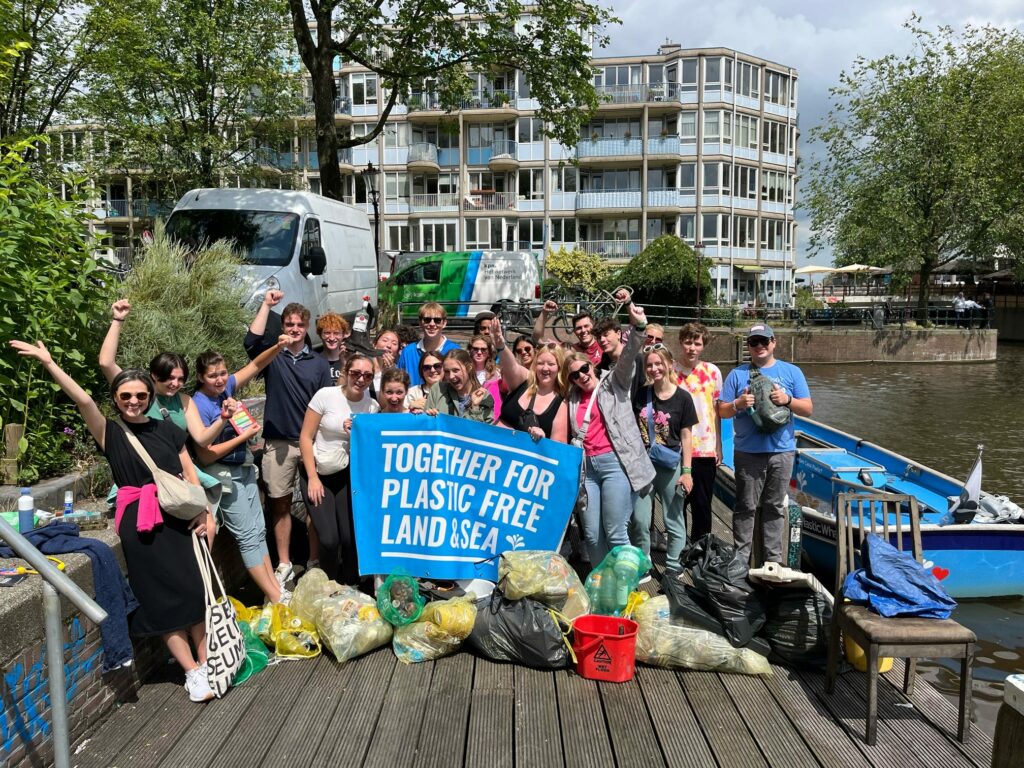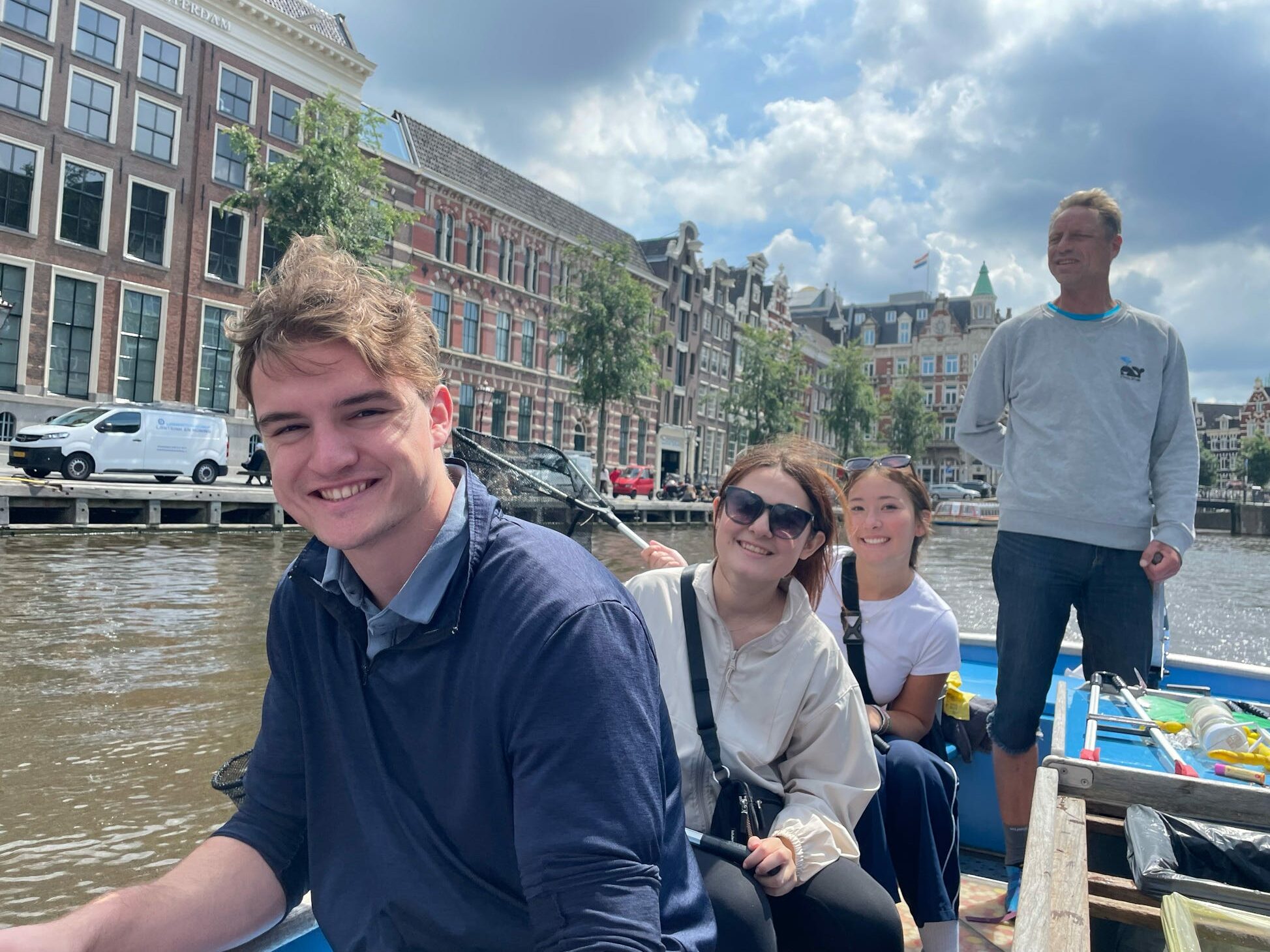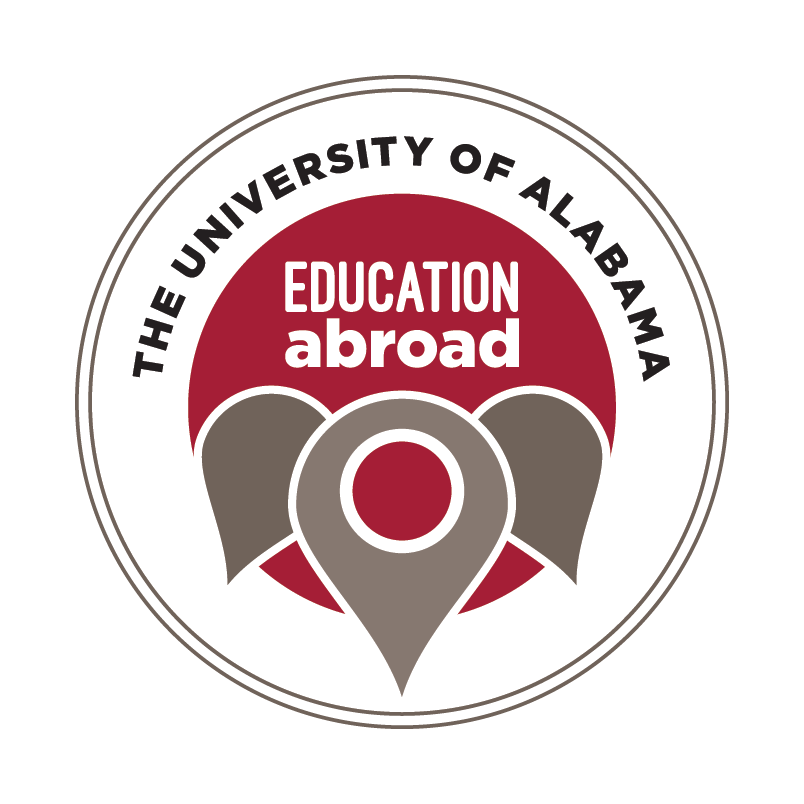


One of the most unexpectedly fun activities on my trip with Honors in Holland was our plastic fishing excursion with the Plastic Whale. This adventure was one of my favorites of the whole program for so many reasons:
- The trash collection was formatted as a competition, splitting the group into three teams on three different boats, and as a highly competitive person, it was game on. This competition aspect really motivated us as students to get outside our comfort zones and basically do anything we could to gather trash from the city canals; no trash left behind! While at times the trash was pretty disgusting, we were able to put that aside for the sake of the canals as well as the competition. Additionally, this aspect allowed us to grow closer as a group. We had to learn how to communicate effectively to help guide the boat towards trash as well as use teamwork to reach far away pieces of trash and efficiently organize the trash into their appropriate disposal bins on the boat. Furthermore, having to all collectively deal with some really nasty trash simply brought us together.
- We got to see so much more of the city! Even though we were mostly focusing on the water, we were still able to take in all the scenery that we floated by. We saw so many cute waterfront restaurants that we bustling with people and were surrounded by the most colorful houses and buildings. Amsterdam has such beautiful and historic architecture, it was really a treat to be able to take more of it in.
- While our impact on the amount of trash actually in the canals was quite low considering we only were able to clean for around an hour, we were still able to witness and participate in sustainable efforts that the Netherlands implements to keep their land and canals clean. One piece of trash that we retrieved from the canals that interested me the most was a receipt. This receipt came from one of the many machines around the city that collect empty bottle in exchange for money. This recycling infrastructure is so simple but so powerful! It encourages recycling by being convenient and by offering a cash incentive. Additionally, these cash incentives add up enough to the point that it allows homeless populations to make enough money to afford food, water, and maybe even housing. However, the fact that we found the receipt for this type of transaction opened the door for more duality when thinking about this infrastructure. How does printing a plastic receipt somewhat negate the effects of recycling the bottle in the first place? Does it actually encourage recycling as a culture or just as a way to earn extra cash?
This trip overall was so fun but also extremely eye-opening at the same time. Activities like these throughout the program really encouraged us to incorporate sustainability as a new facet to consider in our individual disciplines and also allowed us to bond with new friends and have so much fun!
